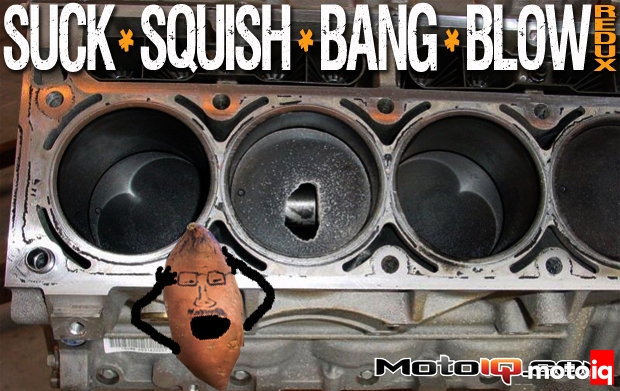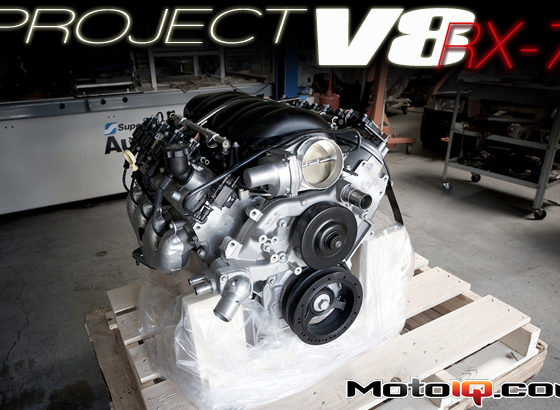,
 |
| Increasing cooling by installing a quality high performance radiator like this Koyo can reduce the chances of getting into detonation, especially on the track. Be sure to run an accurate 50/50 ratio of coolant to water. Running too much coolant is one of the most common causes of overheating we see. |
The common mechanism of detonation is the rising pressure of the piston thrusting upwards towards TDC causing combustion chamber pressures to soar to the point where the fuel air mixture in the ends of the combustion chamber auto-ignites. This secondary flame front collides with the primary flame front from the controlled ignition point started by the sparkplug. The two explosions collide in the combustion chamber at near mach speeds with tremendous force creating the tell tale pinging or knocking noise heard with the occurrence of detonation.
 |
| The effect of detonation on cylinder pressure. The pressure spikes you see are what causes the mechanical damage to the engine. |
There is a debate here if pre-ignition is the same thing or different as detonation. Pre ignition is defined as combustion started before the spark ignites the air fuel mixture. Pre-ignition is one of the phenomena of detonation so we (or I ) lump it all under one term. The root causes are the same and the effects are the same. Denotation caused by pre-ignition does tend to be worse and more damaging because it causes a higher rise in cylinder pressure.
 |
| Proper tuning is the most important tool in avoiding detonation. Most detonation is caused by overzealous tuning to try to eke the most power out of an engine. Running leaner, more advanced ignition timing and more boost generally gets you more power, right up to the detonation threshold of your engine and fuel. It’s a good idea not to tune to the ragged edge of power when doing dyno wars! |
The two most common causes of detonation are over advanced timing and poor fuel. Over advanced timing causes detonation by prematurely starting the combustion event. Cheap, low octane fuel is very volatile being refined from cheaper, light ends. These hydrocarbons burn very rapidly and start to burn easily. Because of these properties, they are more likely to auto-ignite. High octane fuels and racing fuels are made with a higher content of heavy aromatic hydrocarbons. These are less volatile and burn slower. They can take being compressed more before they auto-ignite. If you are running high boost or high compression, don’t cheap out, use the right fuel.
 |
| Quality race gas is perhaps one of the most surefire ways to prevent detonation. We like VP C16 for forced induction engines and C12 for naturally aspirated engines. |
Over advanced timing ignites the fuel air mixture too soon, starting the explosion while the piston is still way too far down the bore. The rising piston collides with the propagating explosion causing cylinder pressures to rise to the auto ignition point. So a no brainer, don’t over advance your timing and if your engine does get detonation, retarding the timing is probably the first thing to do to combat it.



